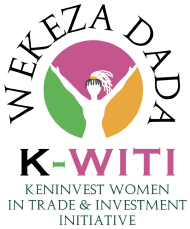German tools maker Stihl Group selects Kenya as hub for East Africa expansion
German outdoor power tools manufacturer The Stihl Group has announced it will establish a hub in Kenya through its second subsidiary on the continent, Stihl East Africa. The hub will serve Kenya, Uganda, Tanzania, the Democratic Republic of Congo (DRC), Rwanda and Burundi among others as Stihl expands its regional presence. The office will be launched later this month. Stihl develops, manufactures and distributes outdoor power equipment for forestry, agriculture, landscaping, construction and cleaning. The firm set up its first Africa sales subsidiary in 1996 in South Africa. Stihl East Africa chief executive Francois Marais said in an August 11 press lease that Kenya is the gateway to East and Central Africa as the country’s infrastructure allows for entry into the markets. “Our plan is to distribute our products from Kenya into the traditional East African market which includes Tanzania, Uganda, Burundi, Rwanda, South Sudan, Ethiopia and the Horn of Africa countries,” he said. A dealership model will used as the firm targets booming agriculture and construction as governments to increase investments in sectors. Stihl is also looking at the DRC, the newest East African Community (EAC) member state. Combined, the EAC now has a population of 300mn and a combined gross domestic product (GDP) of $250bn. The agricultural sector is central to the EAC economy, contributing between 24% and 44% of GDP in partner states, while also accounting for the livelihood of about 80 % of the region’s population. Stihl was founded in 1926 in Germany by Andrea Stihl, the inventor of the chainsaw. His philosophy was to create products that help people interact better with nature through innovation. Story by: Kennedy Senelwa bne IntelliNews Read More








